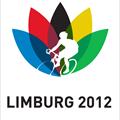
ISO 8601 is an international standard covering the worldwide exchange and communication of date and time-related data. It is maintained by the International Organization for Standardization (ISO) and was first published in 1988, with updates in 1991, 2000, 2004, and 2019, and an amendment in 2022. The standard provides a well-defined, unambiguous method of representing calendar dates and times in worldwide communications, especially to avoid misinterpreting numeric dates and times when such data is transferred between countries with different conventions for writing numeric dates and times.
Prime-time, or peak-time, is the block of broadcast programming taking place during the middle of the evening for television shows. It is mostly targeted towards adults. It is used by the major television networks to broadcast their season's nightly programming. The term prime-time is often defined in terms of a fixed time period—for example, from 8:00 p.m. to 11:00 p.m. or 7:00 p.m. to 10:00 p.m.. In India and some Middle Eastern countries, prime time consists of programmes that are aired on television between 8:00 p.m. and 10:00 p.m. local time.

A time zone is an area which observes a uniform standard time for legal, commercial and social purposes. Time zones tend to follow the boundaries between countries and their subdivisions instead of strictly following longitude, because it is convenient for areas in frequent communication to keep the same time.

The 1998 FIFA World Cup was the 16th FIFA World Cup, the football world championship for men's national teams. The finals tournament was held in France from 10 June to 12 July 1998. The country was chosen as the host nation by FIFA for the second time in the history of the tournament, defeating Morocco in the bidding process. It was the ninth time that it was held in Europe. Spanning 32 days, it was the longest World Cup tournament ever held.
In broadcasting, the watershed is the time of day after which programming with content deemed suitable only for mature or adult audiences is permitted. In the same way that a geological watershed divides two drainage basins, a broadcasting watershed serves as a dividing line in a schedule between family-friendly content, and content deemed suitable only for a more mature audience, such as programs containing objectionable content; this can include graphic violence, strong language, and sexual content, or strong references to those themes, even if they are not shown explicitly. The transition to more adult material must not be unduly abrupt and the strongest material should appear later in the evening.

Central European Time (CET) is a standard time of Central, and parts of Western Europe, which is one hour ahead of Coordinated Universal Time (UTC). The time offset from UTC can be written as UTC+01:00. It is used in most parts of Europe and in a few North African countries. CET is also known as Middle European Time and by colloquial names such as Amsterdam Time, Berlin Time, Brussels Time, Budapest Time, Madrid Time, Paris Time, Rome Time, Prague time, Warsaw Time or Romance Standard Time (RST).

The 2014 FIFA World Cup was the 20th FIFA World Cup, the quadrennial world championship for men's national football teams organised by FIFA. It took place in Brazil from 12 June to 13 July 2014, after the country was awarded the hosting rights in 2007. It was the second time that Brazil staged the competition, the first being in 1950, and the fifth time that it was held in South America. Fans and pundits alike consider this edition of the World Cup to be one of the best ever held.

Turner Classic Movies was an Asian digital classic film channel featuring commercial-free classic movies, mostly from the Turner Entertainment and Warner Bros. film libraries, which include many MGM titles. It was the Asian version of the US Turner Classic Movies and aired in the Indian Subcontinent, Southeast Asia and Middle East.

Nickelodeon is a Belgian television channel that is derived from the Dutch Nickelodeon. The channel started in the summer of 2009 when it got its own programming. Via the satellite, the Dutch version is still being broadcast.

The 2012 UCI Road World Championships took place in the southern part of the Dutch province of Limburg, also known as South Limburg, between September 15 and 23. The event consisted of a road race and a time trial for men, women and men under 23, and team time trials for elite men and women. It was the 79th Road World Championships. Castelfidardo near Loreto in Italy was also a candidate, but Italy had held the UCI Road World Championships in Varese in 2008. The Netherlands had last hosted the Road World Championships in 1998, in Valkenburg aan de Geul, and 2012 was the seventh time that the country hosted the championships.
The 2013 Africa Cup of Nations qualification was the qualification process for the 2013 Africa Cup of Nations, the 29th edition of the Africa Cup of Nations tournament. South Africa automatically qualified as the host country.
The 2011–12 Taça da Liga was the fifth edition of the Portuguese Taça da Liga. The first matches were played on 31 July 2011. The final was played on 14 April 2012, with Benfica defeating Gil Vicente 2–1 to win their fourth consecutive Taça da Liga.
The 2012 V-League season is the 56th season of Vietnam's professional football league and started on 31 December 2011 and finished on 19 August 2012. On 15 December it was announced that the league would change name and would simply be known as the Premier League. Then, it was changed name to Super League.
The 2011–12 Greek Football Cup was the 70th edition of the Greek Football Cup. A total of 57 clubs, ten less than in the last edition, were accepted to enter. The competition commenced on 9 November 2011 with the first round and concluded in April 2012 with the final between Olympiacos and Atromitos, with Olympiacos winning 2–1 after extra time. The delay of the start of the tournament was due to judicial decisions after the Koriopolis scandal.
The 2011–12 Magyar Kupa was the 72nd season of Hungary's annual knock-out cup football competition. It started with the first match of Round 1 on 7 August 2011 and ended with the final held in May 2012 at Stadium Puskás Ferenc, Budapest. Kecskemét were the defending champions, having won their first cup competition last season. The winner of the competition will qualify for the second qualifying round of the 2012–13 UEFA Europa League.
The 2012 J.League Cup, also known as the 2012 J.League Yamazaki Nabisco Cup for sponsoring purposes, was the 37th edition of the most prestigious Japanese soccer league cup tournament and the 20th edition under the current J.League Cup format.
The 2012–13 Coppa Italia, also known as TIM Cup for sponsorship reasons, was the 66th edition of the competition. As in the previous year, 78 clubs have taken part in the tournament. Napoli were the cup holders. Lazio were the winners, thus qualifying for the group stage of the 2013–14 UEFA Europa League.
The 2012–13 Ukrainian Cup was the 22nd annual season of Ukraine's football knockout competition.
The 2012 Lebanese Elite Cup is the 15th edition of this football tournament in Lebanon. The competition started on 4 August. This tournament includes the six best teams from the 2011–12 Lebanese Premier League season.
The 2014 AFC Challenge Cup was the fifth and the final edition of the AFC Challenge Cup, an international football competition for Asian Football Confederation (AFC) member nations that are mainly categorized as "emerging countries" in the now defunct Vision Asia programme. It took place from 19 to 30 May 2014. The winner, Palestine, qualified to the 2015 AFC Asian Cup.









